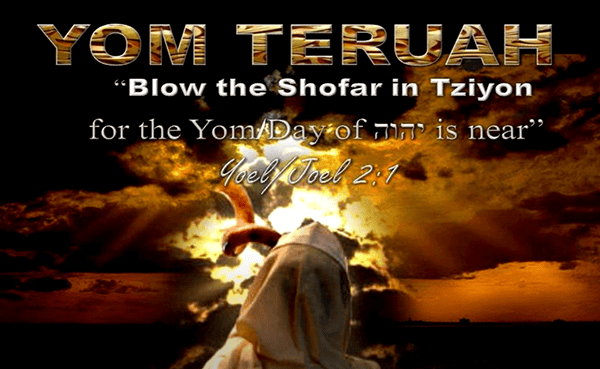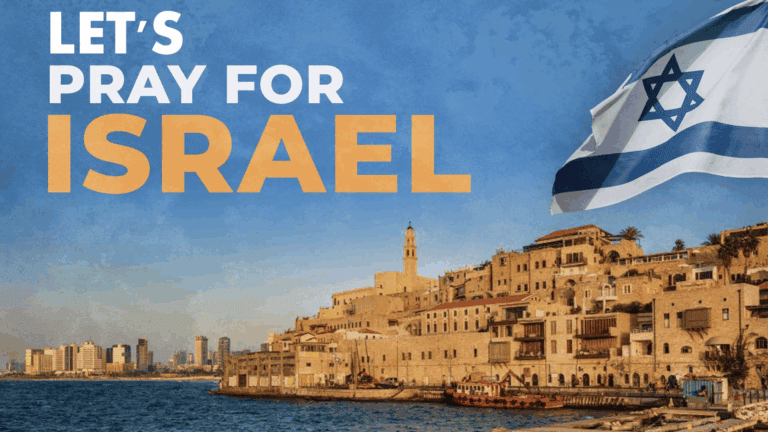By Dr David E Jones PhD
Yom Teruah stands as one of the most significant appointed times in Scripture, marking a day when the sound of the shofar pierces through time itself, connecting heaven and earth in a symphony of remembrance and anticipation. This holy convocation, established in Leviticus 23:24 as “a memorial proclaimed with blast of trumpets,” carries within its ancient rhythms the heartbeat of Yahweh’s eternal purposes for His people.
The Sacred Sounds That Shape Our Faith
The shofar produces four distinct sounds, each carrying deep spiritual significance. The tekiah represents rejoicing and hope through its single, clear blast. The shevarim, broken into three short calls, reminds us of our need to be humble before the coming King who will judge the earth. The teruah sounds an alarm with rapid staccato notes, calling us to plead for mercy before the righteous Judge. Finally, the tekiah gedolah extends as long as possible, pointing to that ultimate trumpet blast when the King returns with power and glory to rule forever.
These sounds echo throughout Scripture, from Mount Sinai where Yahweh descended with thunderings and the voice of the shofar, to Jericho where the walls fell at the sound of the trumpet blast, to that future day when the dead in Mashiach will rise at the sound of Elohim’s shofar.
Trumpets as Heralds of the King
Silver trumpets and shofars served distinct purposes in ancient Israel. Numbers 10:1-2 describes how Yahweh commanded Moses to make two silver trumpets for summoning the community and directing the camps. These instruments called the people to war, announced feast days and new moons, and served as memorials before Yahweh their Elohim.
The shofar, however, carries deeper messianic significance. Made from a ram’s horn, it connects us to the binding of Isaac, where Abraham’s willingness to sacrifice his son foreshadowed the ultimate sacrifice. As the sages of Israel have stated, when we sound the ram’s horn, Yahweh remembers the binding of Isaac and considers it as if we ourselves had bound ourselves to Him.
The Watchman’s Call and Our Commission
Isaiah 58:1 commands us to “cry aloud; do not hold back; lift up your voice like a trumpet; declare to my people their transgression.” This prophetic mandate finds fulfillment in Yochanan, who declared himself “the voice of one crying out in the wilderness, ‘Make straight the way of Yahweh,'” echoing Isaiah 40:3.
Ezekiel 33:1-7 establishes the watchman principle, where those who hear the trumpet must warn others of coming judgment. The watchman who fails to blow the trumpet bears responsibility for those who perish unwarned. This sobering responsibility extends to us today, as we serve as watchmen for the house of Israel.
The Great Gathering and Resurrection Hope
Traditional themes of Yom Teruah include the gathering of Israel, the coronation of the King of kings, and resurrection day. Isaiah 27:12-13 promises that “a great trumpet will be blown, and those who were lost in the land of Assyria and those who were driven out to the land of Egypt will come and worship Yahweh on the holy mountain at Jerusalem.”
This gathering extends beyond physical Israel to include all the scattered children of Elohim. John 11:52 reveals that Yeshua would die “not for the nation only, but also to gather into one the children of Elohim who are scattered abroad.”
The resurrection connection appears throughout Scripture. Daniel 12:2 speaks of those who sleep in the dust awakening to everlasting life. First Thessalonians 4:16 declares that “the Master Himself will descend from heaven with a commanding shout, with the voice of the archangel and with the blast of Elohim’s shofar, and the dead in Mashiach shall rise first.”
The Shofar Proclaims Freedom
The connection between Yom Teruah and Yom Kippur reveals itself in the Jubilee year, when the shofar announced liberty throughout the land. Leviticus 25:9 commands the sounding of the shofar on Yom Kippur to proclaim the Year of Jubilee. This proclamation of freedom comes only after atonement is complete, demonstrating that true liberty follows forgiveness.
The Hebrew word for forgiveness, aphesis, relates to yovel (jubilee), revealing that without atonement there can be no true return to our spiritual inheritance and homeland.
Our Voice as the Shofar
Just as a shofar is essentially “dead skin” that produces sound only when breath passes through it, we must yield ourselves to allow Yahweh’s breath to flow through us. The quality of sound depends entirely on the instrument’s surrender to the breath that animates it.
Yeshua commanded His disciples in Matthew 10:6-7: “go rather to the lost sheep of the house of Israel. And proclaim as you go, saying, ‘The kingdom of heaven is at hand.'” This commission continues today as we lift our voices like trumpets, carrying the message of the coming Kingdom to the scattered sheep of Israel.
Living in the Already and Not Yet
We stand between two trumpet blasts: the first advent when Mashiach came as the suffering servant, and the second when He returns as conquering King. This tension calls us to live fully in both realities, acknowledging present victory while anticipating ultimate consummation.
Yom Teruah reminds us that this is a time to rejoice, to hear, to proclaim, and to act on behalf of Yahweh’s Kingdom. As Psalm 89:15 declares, “Blessed are the people who know the joyful sound: they shall walk, O Yahweh, in the light of Your countenance.”
The shofar’s call echoes across the ages, summoning us to awaken, arise, and gather the scattered children home. We are the instruments through which Yahweh’s breath sounds forth His message of hope, redemption, and the coming Kingdom.








